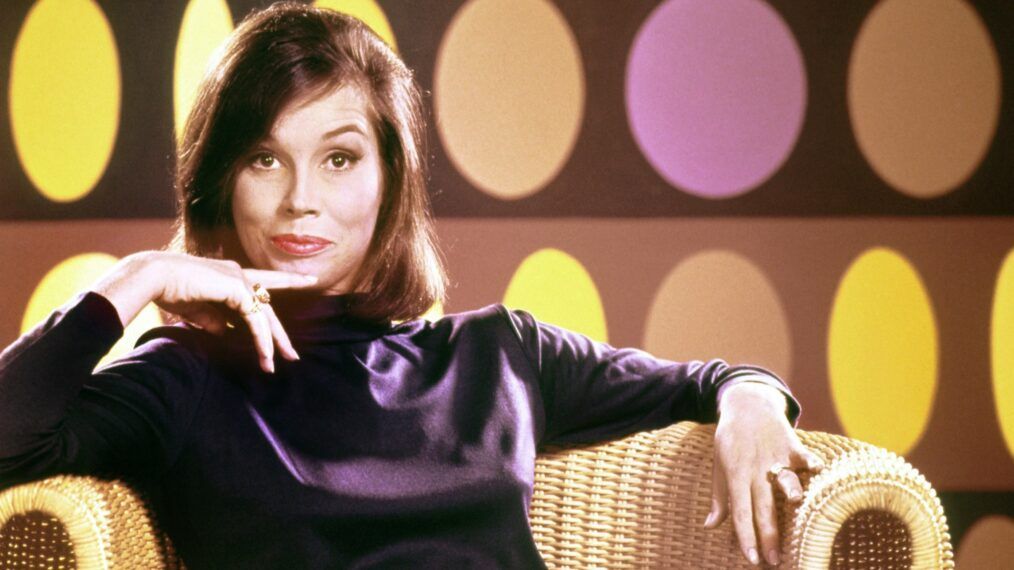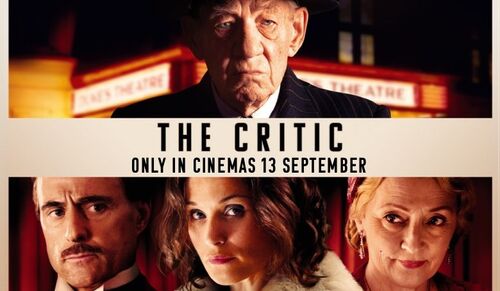
'Being Mary Tyler Moore' Review
 “Being Mary Tyler Moore”, HBO’s new documentary on the legendary actress/comedian, opens with clips from a 1966 interview between Moore and talk show host David Susskind. He’s on the attack, questioning the value of women in society and, specifically, Moore’s character on “The Dick Van Dyke Show”. Moore fights back confidently, defending Laura Petrie and what she represents.
“Being Mary Tyler Moore”, HBO’s new documentary on the legendary actress/comedian, opens with clips from a 1966 interview between Moore and talk show host David Susskind. He’s on the attack, questioning the value of women in society and, specifically, Moore’s character on “The Dick Van Dyke Show”. Moore fights back confidently, defending Laura Petrie and what she represents.
This is a rare, juicy moment in “Being Mary Tyler Moore”, a thorough, enjoyable, but mostly standard two-hour bio-doc on America’s TV sweetheart of the ‘60s and ‘70s.
If you’re a classic television/pop culture buff, you’ll quickly be all-in. “Being Mary Tyler Moore” chronicles MTM’s entire life — a troubled childhood, early career breaks, a Broadway disaster, redemption and regret. The stories come mostly from Moore herself, through archival interviews with not only Susskind, but Dinah Shore, David Letterman and a 1981 conversation with Rona Barrett, which is used a few too many times.
New soundbite insights from Dick Van Dyke, James L. Brooks and James Burrows are highlights, along with a some golden, behind the scenes videos, including the day Moore’s parents visited a “Mary Tyler Moore Show” taping. (We also get to see Betty White participate in Moore’s bridal shower ‘roast’ at her home.)
Some interesting trivia tidbits are sprinkled in. Older viewers will remember that Moore was the first sitcom wife/mom to wear pants. A ’69 TV special with Van Dyke, structured as a showcase for Moore, convinced CBS execs to give her a series of her own (which would, of course, become one of the greatest sitcoms of all-time). Lucille Ball approved of and adored Moore, who recalls Lucy telling the young actress “You’re very good”, which Moore considers the greatest compliments of her life. And, surprisingly, Moore had no role with the MTM company she founded with then husband Grant Tinker. Her initials were on it, but Tinker ran everything.
Moore’s drive and determination to be a star are on full display. She didn’t like wasting time, with her work and with her children. Unfortunately, this movie doesn’t follow her lead, stretching-out elements that could have been dealt with much quicker (including a section on the “Mary Tyler Moore Show’s” intro, Chuckles the Clown episode and an over-emphasis on that show’s Emmy wins).
The biggest question “Being Mary Tyler Moore” raises is whether Moore – the person – was anything like her iconic characters in real life. Some of those interviewed claim she was. Some say she was totally different. Some contend she was more Mary Richards than Laura Petrie. Others say the opposite. Moore shares conflicting points of view on the subject at different points in her career. At times she claims she’s a feminist, while at other stages she readily admits to needing a man to feel complete.
Moore’s life included some troubling and tragic moments, including her struggles with alcoholism and her son Richie’s shooting death just weeks after the 1980 premiere of “Ordinary People” (which may or may not have been accidental). Archive photos of Moore and a younger Richie playing with a toy rifle will stick with you.
But for the most part, “Being Mary Tyler Moore” is about as positive, straightforward and safe a bio-doc as they make ‘em. There’s nothing director James Adolphus does that makes the experience next-level. Love, clearly, is all around.
Still, for fans of MTM this is a must-watch. They made it, after all.


